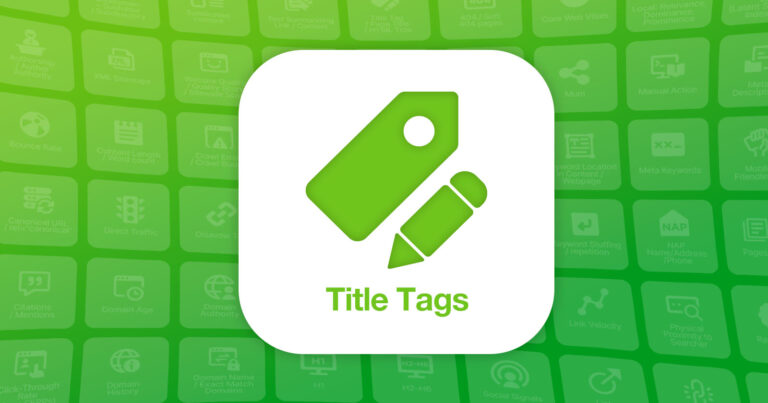
An affiliation between web page titles and Google search rankings is as robust in the present day because it was within the early days of search engine optimization.
Individuals of all search engine optimization backgrounds agree that optimizing web page titles is significant to go looking success.
And the way may one argue?
Web page titles are essentially the most seen element of Google’s search outcomes pages (SERPs). It is easy to conclude that they carry weight as a rating issue.
However extra optimization is just not essentially higher. Optimization can cross the road into manipulation. That is if you write for engines like google earlier than you do actual folks.
Traditionally, Google devalues rating components when the level of manipulation reaches some extent the place it impacts the standard of search outcomes.
A first-rate instance of that is domains, which Google as soon as valued so extremely that it was tough to rank them with out Key phrases in your URL.
That is a factor of the previous, and now it is simply as potential to rank with an obscure model identify in your URL as it’s with a keyword-based area.
As Google search matures, it is logical to surprise if web page titles may go in an identical path. Will Google ultimately get fed up with spam and cut back the load of the web page title rating issue?
Who is aware of what the long run will convey us, however we’re not there but. There isn’t any query that Google’s algorithms take web page titles under consideration.
As a substitute, the questions on web page titles are:
- The extent to which title tags are valued.
- How essential they’re to the general image of a website’s search optimization.
On this article, we intention to reply these questions by analyzing varied claims and taking a look at statements logged by Google.
[Deep Dive:] The Full Information to Google Rating Elements
The Declare: Title tags are a rating issue
A web page title is the textual content that seems within the